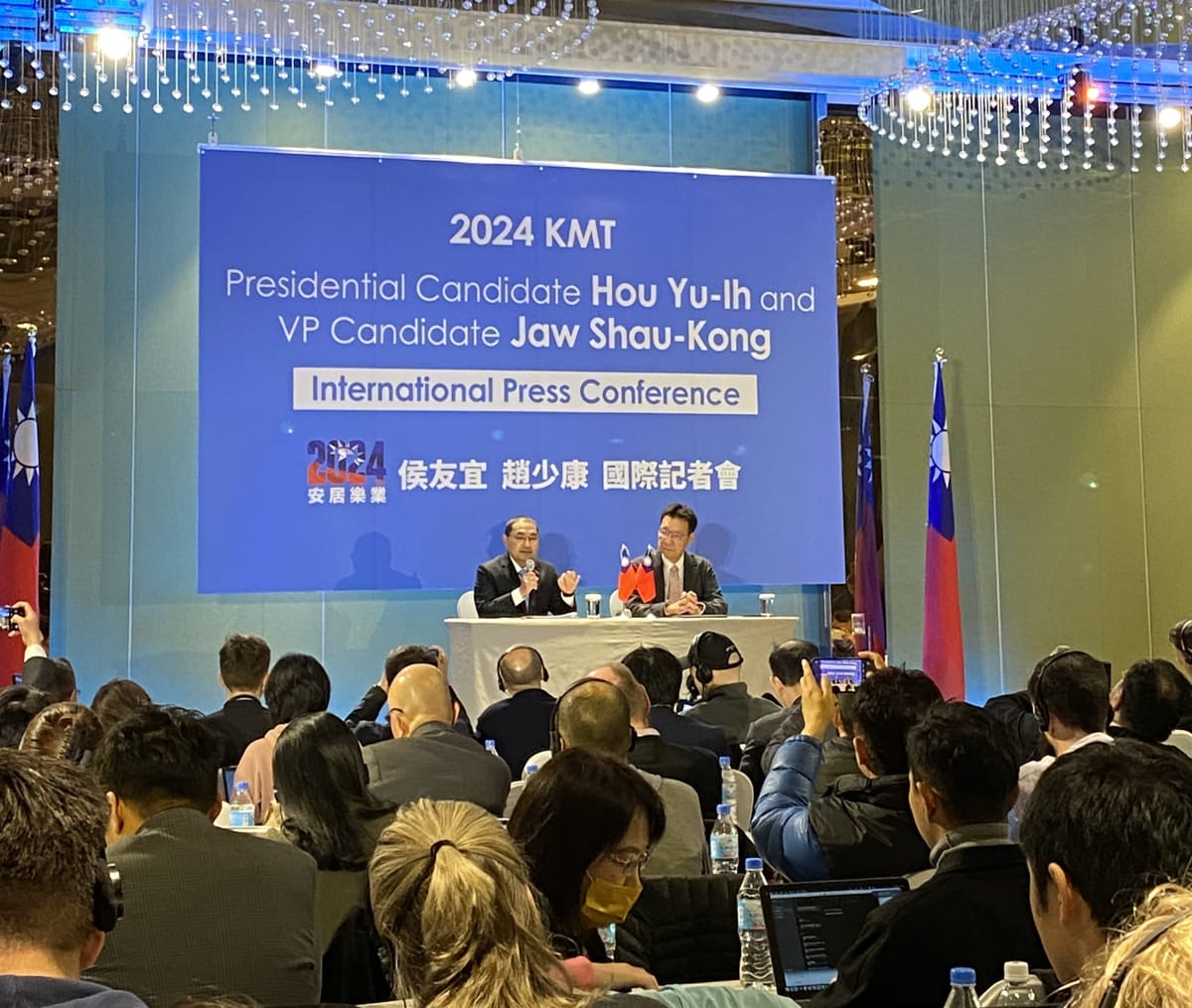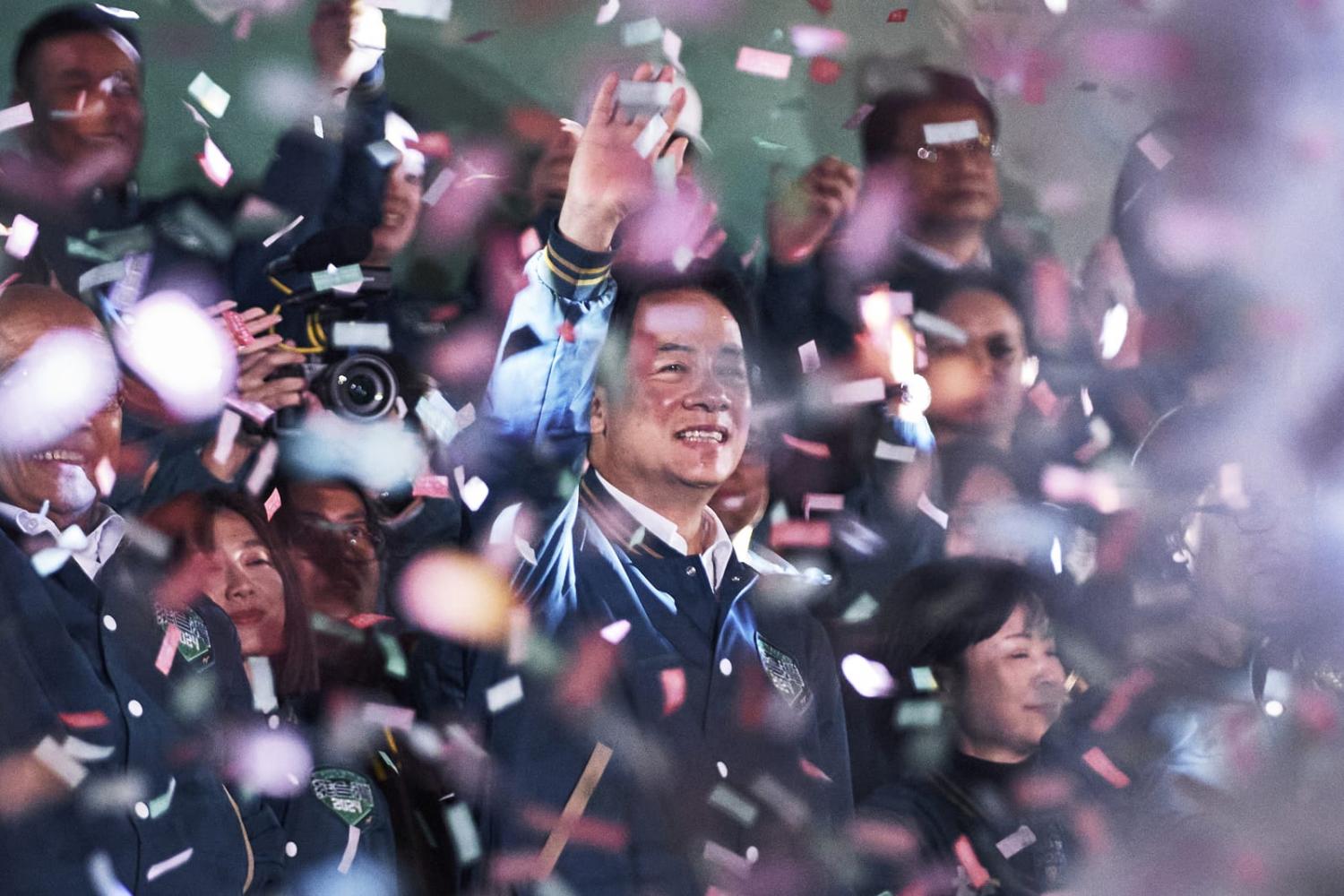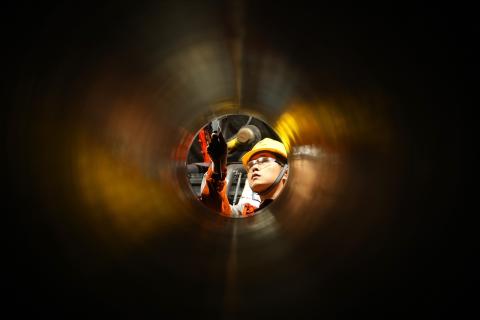At a Taipei press conference just ahead of Taiwan’s recent elections, the opposition Kuomintang’s (KMT) then-presidential candidate Hou Yu-ih was asked an interesting question. If the KMT opposes unification with China, including under the “one country, two systems” model, but also opposes Taiwan’s formal independence, then does this mean that the status quo – of effective, but not formal independence – is permanent?
Hou avoided the question, pivoting to his talking points the way politicians do. It was clearly an incredibly difficult question for someone in his position to answer. Yet it remains a critical question to consider. Because preserving the status quo across the Taiwan Strait is not only a geopolitical issue concerned with preserving peace, it also affects the hopes and ambitions of the Taiwanese people and what Taiwan is able to contribute to the world – a perspective central to the Democratic Progressive Party (DPP) and its new president-elect Lai Ching-te.
While some hardcore elements within the KMT may consider there to be a third option – the collapse of the Chinese Communist Party (CCP) and the triumphant return to the mainland for the Republic of China (Taiwan’s official name) – this seems unlikely at present. The emergence of a strong Taiwanese identity within younger generations means this may not hold widespread appeal – although a respite from the CCP’s constant harassment would be welcomed.
It is the aspirations for Taiwan as its own country that are most affected by a permanent status quo. The peace created from the status quo has allowed Taiwan to flourish as a significant economic and cultural player in its own right across the Indo-Pacific, and become home to some of the most advanced technology that the world now relies on by the minute. Yet it has prevented it from being able to fully utilise its capabilities in many international forums and restricts the opportunities available to Taiwan’s highly skilled citizens.

Due to its veto, China prevents Taiwan’s participation in any arms of the United Nations. Because of this, the resources and expertise available to tackle major global problems are limited. Being blocked from participation in the World Health Assembly (WHA) during the Covid-19 pandemic being the obvious recent example. Taiwan previously had observer status, which was revoked in 2016. This creates significant blind spots in how we address global health concerns.
The world’s current and emerging challenges, from climate change to the rise of authoritarianism, could benefit from much more substantial contributions from Taiwan. Given how relentlessly China attacks Taiwan with disinformation – or cognitive warfare as Foreign Minister Joseph Wu calls it – Taiwan’s ability to share the lessons learned from such attacks is critical to the stability of other democracies around the world. The UN has started taking a keen interest in the severe challenges posed by disinformation and artificial intelligence making it extraordinary that the country on the frontline of such manipulation has no way of providing official input.
Recently, there has been a strong diplomatic campaign from Taiwan to gain membership of Interpol. With the severity of much transnational crime, it hinders every country’s ability to combat it without Taiwan having the real-time intelligence that Interpol shares. The recent US State Department’s Trafficking in Persons Report ranks Taiwan as a “Tier 1” country for combating human trafficking, a status it has achieved with one hand tied behind its back.
Where Taiwan is allowed to participate in international organisations – as well as sporting events – it often has to suffer the indignity of doing so under the name “Chinese Taipei”. It is within such absurdities that China’s real power lies. While having no authority at all within Taiwan’s territory, Beijing is nonetheless able to cower the international community into accepting and endorsing an official fiction about Taiwan’s reality.
Rather than this being China’s power over Taiwan, it is actually the power China has over the rest of us. The way we exclude Taiwan from being a normal country in order to placate Beijing is our own indignity. It is how we refuse to treat China as an adult, far too concerned with its feet stamping and emotional outbursts. Alongside this sits a betrayal of the Taiwanese people – how we ask them to carry the burden of limiting themselves to protect the world from any Chinese aggression.
The question asked to the KMT’s Hou about a permanent status quo is therefore not one only for Taiwan’s political leaders or the broader Taiwanese population to consider. It’s also a question about how long do we all continue to lie to ourselves – and to China – about Taiwan? The status quo is one where China is able to dictate a falsehood to the rest of the world. If we allow it to persist, submission to other falsehoods may also become the status quo.

